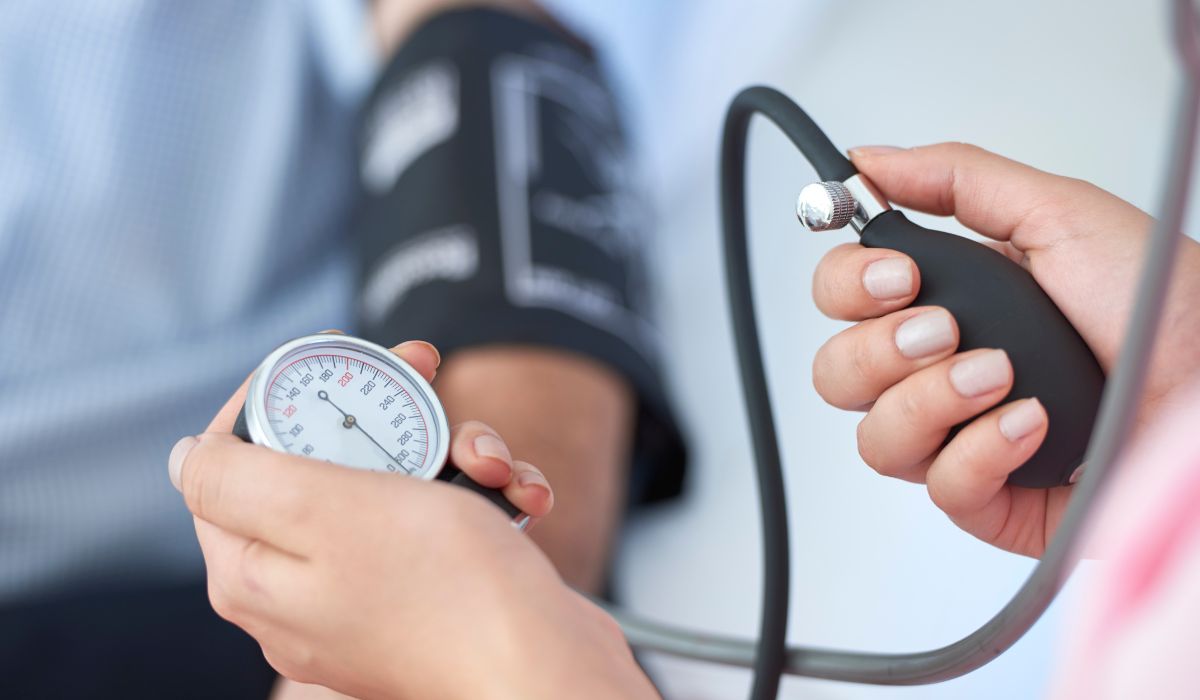Does Amphetamine Show Up on a Drug Test?
If you or someone you care for is wondering, “Does amphetamine show up on a drug test?”, you’re in the right place. This guide explains the basics in clear, friendly language. We’ll talk about urine tests, blood tests, hair tests, and what can change results such as dose, frequency, metabolism, mental health, and medication use. We’ll also share how Lynk Diagnostics, a drug testing center dedicated to rehab facilities, supports patients and care teams.
Amphetamine is a stimulant that affects the central nervous system. Doctors sometimes prescribe forms of amphetamine, including dextroamphetamine, to treat attention deficit hyperactivity disorder (ADHD). But amphetamine can also be misused, which can lead to substance abuse and addiction. Because of safety risks—like fast heart rate, high blood pressure, and even hyperthermia (dangerously high body temperature)—many schools, workplaces, and treatment programs use a drug test to check for it.
Below, we break it all down in simple steps.
What Is Amphetamine?
Amphetamine is a drug that speeds up messages in the nervous system. It can help some people focus, especially patients with attention deficit hyperactivity disorder. In healthcare, doctors choose a careful dose and monitor the patient closely. However, taking amphetamine without a doctor’s guidance or mixing it with alcohol or other substances can be dangerous.
Related Drugs and Terms
- Dextroamphetamine: a common medical form used in ADHD treatment.
- Methamphetamine: a stronger, more risky stimulant often linked to misuse; tests can check for both amphetamine and methamphetamine.
- Medication vs. misuse: taking a prescription as directed is different from substance abuse.
Why Do Drug Tests Look for Amphetamines?
Many settings use testing to protect safety and health:
- Rehab and therapy programs track recovery and behavior changes.
- Employment screenings help maintain safe workplaces.
- Healthcare teams monitor medication adherence and side effects like high blood pressure or fast heart rate.
- Legal or school settings may test when safety is a concern.
Lynk Diagnostics supports rehab facilities with clear results, compassionate service, and fast turnaround so care teams can make good decisions for each patient.
Types of Drug Tests That Detect Amphetamine
Urine Test (Most Common)
A urine test is the most widely used method. It’s fast, simple, and can detect recent use. Many point-of-care cups use an immunoassay screen for amphetamine and may confirm positives with lab-based methods.
Typical window (approximate):
- After use, amphetamines may show up in urine for about 1–3 days.
- Heavier or more frequent use can extend this window for some people.
Why urine tests are popular:
- Noninvasive and quick.
- Good for routine checks in programs focused on addiction or substance abuse recovery.
Blood Test
A blood test can show what is currently in the bloodstream.
Typical window (approximate):
- Often hours to a day or so after use, depending on dose and metabolism.
Why blood tests are used:
- Useful when a clinician needs to know about very recent use or to assess medical concerns like hyperthermia, blood pressure, or heart rate spikes.
Hair Test
A hair test can capture a longer history.
Typical window (approximate):
- Can reflect use over weeks to months (depending on hair length).
- Not ideal for detecting very recent use (it takes time for substances to grow into hair).
Why hair tests are used:
- Helpful when a longer view of patterns is needed, such as repeated use over time.
What Changes How Long Amphetamines Stay Detectable?
Dose and Frequency
A higher dose or more frequent use can be detectable longer, especially in urine and hair.
Metabolism and Health
Everyone’s metabolism is different. The liver and kidneys help clear drugs from the body. Health conditions, certain diseases, hydration, and body composition can change how fast that happens.
Medication and Cross-Reactivity
Some over-the-counter products or medication may trigger a screen. That’s why confirmatory testing and a full medication list are important. Tell the testing team about prescriptions like dextroamphetamine for attention deficit hyperactivity disorder, or any other doctor-ordered medicines.
Alcohol and Other Substances
Mixing amphetamines with alcohol or other drugs can be harmful and may affect behavior. It can also raise medical risks, including high blood pressure, fast heart rate, and overheating (hyperthermia).
How Do Labs Confirm Results?
Most programs start with a quick immunoassay screen. If the screen is positive or unclear, a lab may use advanced tools (for example, mass spectrometry) to confirm exactly what’s present and at what levels. This two-step approach helps reduce false positives and supports careful, fair decisions for each patient.
Lynk Diagnostics provides clear, clinic-friendly reports so treatment teams can match results with clinical notes, mental health status, and care plans.
Medical Uses vs. Misuse
When Prescribed
For patients with attention deficit hyperactivity disorder, dextroamphetamine or mixed amphetamine salts may help attention and control behavior when used as directed. Doctors monitor dose, side effects (like blood pressure or heart rate changes), and overall mental health.
When Misused
Misuse can lead to:
- Addiction and substance abuse
- Sleep problems and mood swings
- High blood pressure, fast heart rate
- Hyperthermia and dehydration
- Strain on the central nervous system
If misuse is suspected, a professional assessment can help. Rehab programs partner with labs like Lynk Diagnostics to support safe care and recovery.
Employment Testing: What to Expect
Many employers use pre-hire or random drug testing to ensure safety, especially in jobs involving driving, machinery, healthcare, or public safety. If you have a prescription for dextroamphetamine or another ADHD medication, be honest with the testing team. Bring your prescription information. Confirmatory testing can help distinguish between medical use and misuse, and medical review officers (MROs) may contact you to verify prescriptions.
Safety Tips for Patients and Care Teams
For Patients
- Use medication exactly as prescribed. Never change your dose without talking to your provider.
- Avoid mixing with alcohol. This raises health risks and may affect your behavior.
- Share your full medication list before a drug test.
- Watch your health. Report fast heart rate, high blood pressure, overheating, or mood changes.
- Keep regular check-ins. Follow up with your care team about mental health, sleep, appetite, and school or work performance.
For Clinicians and Programs
- Use clear, patient-friendly education on test types (urine, blood, hair) and detection windows.
- Pair results with clinical context: frequency of use, metabolism, disease states, and behavior observations.
- Confirm screens before making big decisions.
- Coordinate with trusted labs like Lynk Diagnostics, a drug testing center dedicated to rehab facilities, for reliable and timely reporting.
How Long Can Amphetamines Be Detected? (Simple Overview)
- Urine test: often up to 1–3 days after use; longer with heavy or frequent use.
- Blood test: shorter window—hours to about a day, depending on dose and timing.
- Hair test: can show patterns over weeks to months, but not very recent use.
These are general ranges. Individual results vary with metabolism, frequency, medication, hydration, and overall health.
Common Myths (And the Facts)
Myth: “Drinking a lot of water means I’ll pass a urine test.”
Fact: Over-hydration can dilute urine and trigger re-testing. Labs also check for sample validity.
Myth: “Prescription use never shows up.”
Fact: It can show up, but proper documentation helps reviewers understand medical use.
Myth: “A blood test is always better.”
Fact: Each test type (urine, blood, hair) answers a different question—recent use vs. longer patterns.
Myth: “All amphetamines are the same.”
Fact: Drugs like methamphetamine and medical dextroamphetamine are different. Confirmatory testing helps tell them apart.
When to Seek Help
If you’re worried about substance abuse, addiction, or side effects like high blood pressure, fast heart rate, or hyperthermia, talk with a clinician right away. If you’re in a rehab program, your care team can coordinate testing with Lynk Diagnostics and adjust treatment safely. Support is confidential, respectful, and focused on your goals.
About Lynk Diagnostics
Lynk Diagnostics is a drug testing center dedicated to rehab facilities. We offer:
- Compassionate service for every patient
- Fast, reliable urine, blood, and hair testing
- Clear reports that clinicians can use to support mental health and recovery plans
- Confirmatory testing when needed, so decisions are fair and accurate
FAQs
How long does amphetamine stay in urine?
A urine test can often detect amphetamine for about 1–3 days after use. Heavy or frequent use may lengthen this time. Everyone is different due to metabolism, dose, and overall health.
Can a blood test find amphetamine right away?
Yes. A blood test can show very recent use—usually within hours to about a day—depending on timing and dose. It’s useful in medical settings when safety is a concern.
Do hair tests show older use?
Yes. Hair tests can reflect use over weeks to months, depending on hair length. They are not ideal for very recent use because it takes time for substances to grow into hair.
What if I take dextroamphetamine for ADHD?
If you take dextroamphetamine for attention deficit hyperactivity disorder, bring your prescription details to the drug test. Medical review can confirm proper use and help avoid confusion.
Can alcohol change my test results or health risks?
Mixing alcohol with amphetamines increases health risks like fast heart rate, high blood pressure, and hyperthermia. It doesn’t “erase” a positive test and can make side effects worse.








